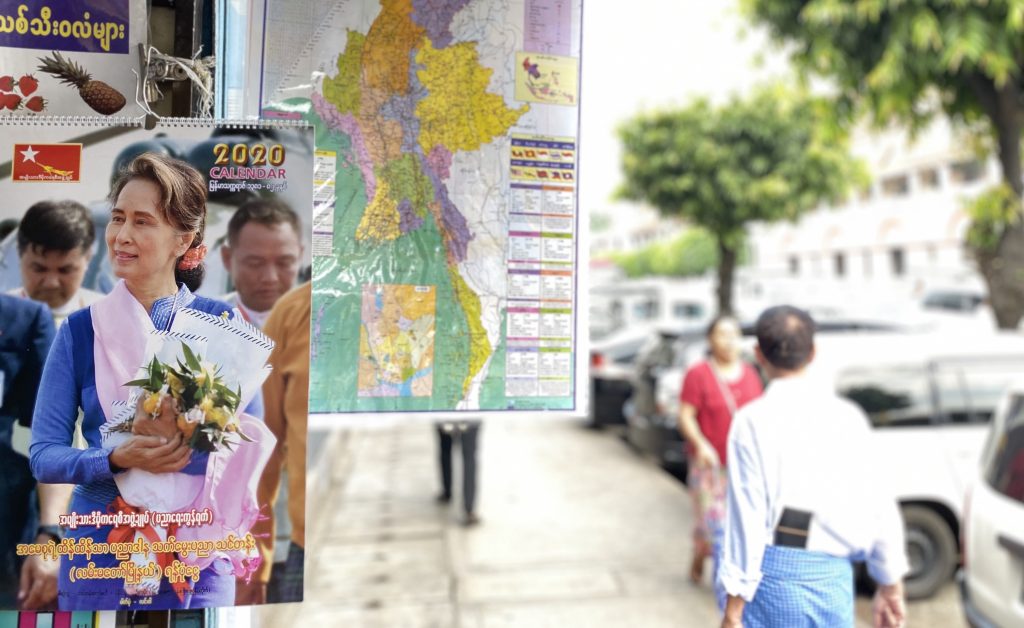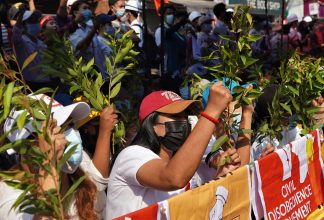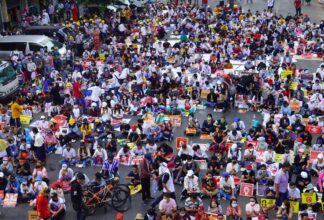Important to Remember That Burma is Not a Democracy

On 8 November, Burma will head to the polls. But when we see photos of winding queues of people ready to cast their vote, it is important not to mistake this for a democratic election. The military still rules behind the scenes and the civilian government that is elected will continue to have limited actual power.
It is difficult not to get carried away by enthusiasm when images that give the impression of a democratic election are being spread around the world. A country covered with campaign posters and winding queues of voters in front of polling stations. But the Burma 2020 election is taking place during an escalating Covid-19 crisis that prevents campaigning. An eruption of civil war is raging in the western parts of the country, and the population has in many places been completely excluded from participating in the election. In recent years there has been a long series of restrictions on already limited civil and political rights that prevent a free and open debate ahead of the election.
In the run-up to the election the Electoral Commission, which is dominated by the ruling party, has forced several parties to censor televised speeches. It has also been disqualifying candidates from running. In addition, hundreds of websites have been blocked with the argument that they spread false information about Covid-19, this after the government during the ongoing election campaign was completely blindsided by the escalating pandemic.
It is also clear that at least 2.6 million Burmese have been disenfranchised, either because they belong to the persecuted Rohingya ethnic minority group, or because they are residents of war zones in ethnic minority states in, which are also areas where the governing National League for Democracy (NLD) happens to have low prospects of success in the election. The grounds for excluding voters is an argument that the election cannot be conducted safely.
From Democracy Icon to Power Player
The leader of the NLD, State Counsellor Aung San Suu Kyi, began her career as a democracy activist in 1988. Despite severe repression by the military and a total of 16 years under house arrest, she managed during a long period of time to set the political agenda through a very effective tool: her ability to fearlessly criticise the military for its shortcomings. This gave her immense popularity among many groups. Her well-known words about not being paralysed by fear and her principled defence of human rights were a source of inspiration for democracy activists in many parts of the world.
Now, however, it is a completely different character who is running for re-election. Today she is extremely careful of expressing herself in a way that challenges the military. The military has also made it clear that there is reason to be cautious. One of Aung San Suu Kyi’s closest advisers, Ko Ni, who worked on a plan to democratise the constitution, was cold-bloodedly murdered in public in 2017.
Aung San Suu Kyi has not only remained silent in the face of the military’s continued abuses against minorities but has even actively defended them. In December 2019, a new low was reached when she denied the violent expulsion of over 700,000 Rohingya before the International Court of Justice in The Hague. The democracy icon had turned into an unprincipled power player who tried to gain short-term political points from nationalist groups by repeating the military’s own rhetoric and playing the role of their defender.
An Election with a Given Outcome
Overall, the outcome of the election is already given. Army generals rule behind the scenes and the constitution, which is written by the military, assures that it remains so regardless of the election result. The indications are that the current government will retain a large majority in parliament. But the constitution gives the military all the important ministerial posts, and in practice, the military controls the entire state administration. A quarter of the seats in parliament are reserved for the military, which gives them the veto power on any change to the constitution. The constitution allows the military to dissolve parliament at any time if they consider the nation’s security to be threatened.
Therefore, it is not primarily the balance of power in the parliamentary assemblies that is the interesting part about the election, they are already rigged to maintain military control. The main question in the election will instead be whether the NLD has lost in popularity and to what extent the parties of the military or the ethnic minorities succeed in asserting themselves in the election.
What is clear is that the current government is almost completely silent about demands for democratic reform. When reports of election winners are circulated, it is important for the outside world to remember that the parliamentarians elected in practice have very limited opportunities to steer the country in a democratic direction. Real change can only take place through the many organisations, networks, and human rights defenders who choose to challenge power every day despite the risks it entails. If we want answers to what a democratic Burma could look like, they are the ones we should turn to.

